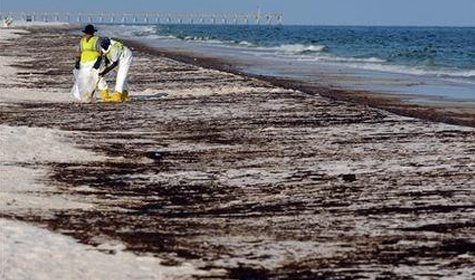WASHINGTON, D.C. — The National Fish and Wildlife Foundation (NFWF) announced about $13.2 million in grants for eight Texas projects that will use criminal settlement funds from the BP oil spill to add land to coastal wildlife refuges, restore threatened marshes, and protect vital habitat from erosion.
The projects, developed in consultation with the Texas Parks and Wildlife Department, Texas Commission on Environmental Quality, Texas General Land Office and federal resource agencies, are designed to remedy harm or reduce the risk of future harm to natural resources that were affected by the 2010 Deepwater Horizon oil spill.
The moneys are the second obligation from NFWF’s Gulf Environmental Benefit Fund, created 18 months ago as part of the settlement between the U.S. Department of Justice, BP and Transocean to resolve certain criminal charges against both companies in relation to the spill. Under the allocation formula and other provisions contained in the plea agreements, a total of $203 million will be paid into the Gulf Fund over a five-year period for conservation projects in the state of Texas.
“The Texas coast is an ecological treasure, and these grants make strategic use of BP spill restoration dollars to conserve critical coastal habitats in ways that benefit fish, wildlife, and people,” said Carter Smith, Texas Parks and Wildlife Department executive director. “This vital work would not be possible without the National Fish and Wildlife Foundation and our Texas project partners, including the U.S. Fish and Wildlife Service, The Conservation Fund, The Nature Conservancy, Artist Boat, Coastal Bend Bays & Estuaries Program, Galveston Bay Foundation, Ducks Unlimited, and SCENIC GALVESTON, Inc.”
“The model for the Gulf Environmental Benefit Fund is one of partnership,” said Jeff Trandahl, executive director and CEO of NFWF. “In order to succeed, NFWF must bring together state resource agencies, federal agencies, and other public and private partners, all working in harmony to fund the best projects that will do the most good for the Gulf of Mexico and the communities that depend on it each and every day. The projects we announce today demonstrate the value of our efforts to work in a collaborative fashion to select projects that will provide significant benefits to wildlife and people for many years to come.”
In early 2013, a U.S. District Court approved two plea agreements resolving certain criminal charges against BP and Transocean related to the Deepwater Horizon oil spill. Provisions within the plea agreements direct a total of $2.544 billion to the National Fish and Wildlife Foundation over a five-year period. The funds are to be used to support projects that remedy harm or reduce the risk of future harm to natural resources that were affected by the oil spill.
Texas 2014 Projects
(See detailed project information on the NFWF website.)
- Anahuac N.W.R. Coastal Marsh Acquisition – $4,363,200
- Coastal Heritage Preserve Initiative: Bayside Acquisition and Easement — $2,632,500
- Virginia Point Shoreline Protection and Estuarine Restoration — $2,000,000
- Oyster Lake Shoreline Protection and Restoration — $1,200,000
- Greens Lake Protection and Marsh Restoration: Engineering & Design — $125,000
- Dollar Bay-Moses Lake Shoreline Enhancement and Restoration — $130,300
- Egery Flats Marsh Restoration — $1,587,000
- Nueces Bay Rookery Islands Restoration — $1,145,000
The state of Texas has set up a website where people can learn more about the process of identifying restoration projects for funding through the Gulf Fund, and suggest projects for consideration, at www.restorethetexascoast.org.
To learn more about NFWF’s Gulf Environmental Benefit Fund in Texas, visit http://www.nfwf.org/gulf/Pages/GEBF-Texas.aspx.

